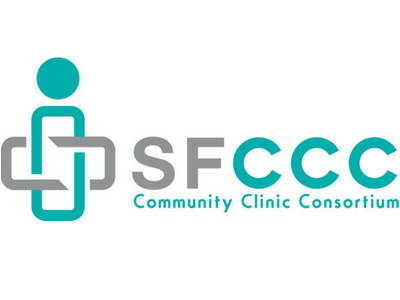NHC SF Member Blog: On Standing Up, and Sitting Down
My name is Aurora Golden-Appleton (she/her), and I’m from Ithaca, NY. After finishing my junior year of college, I moved to San Francisco to begin serving at the San Francisco Department of Public Health on the Street Medicine and Shelter Health Team. I split my time between shelters and street outreach in the Tenderloin, Potrero Hill, and Bayview neighborhoods. My hobbies include recreationally walking long distances, doing crosswords, and spending hours on hold with health insurance companies.
Just as quickly as fentanyl molecules can overcrowd a person’s opioid receptors and arrest breathing during an overdose, a nasal spray called Narcan can rapidly reverse what otherwise might be imminent death. But even such a seemingly miraculous medicine is useless on a shelf; by nature, the person overdosing cannot use it to save their own life.
Zachary Siegel, a journalist who writes on drugs, commented, "Naloxone’s [Narcan's] key ingredient, its mechanism of action, lies beyond chemistry: for naloxone to save a life, people have to show up for one another." Narcan, like all public health interventions, is only useful in the hands of human beings who care about each other.
Throughout my service with Americorps, I have witnessed what seems to be an ever-growing list of interconnected “diseases.” The COVID-19 pandemic. Racism and related forms of structural violence. Skyrocketing overdose deaths. Gun violence. There are far too many instances in which our societies fail to uphold the dignity of all people.
When it seems we are far from the "beloved communities" Rev. Martin Luther King Jr. imagined, we stand up for people and causes, building these communities anew. Equally important, though, is where, and with whom, we choose to sit—in emergency rooms and trailers, on sidewalks and buses, from the Tenderloin to the Bayview and everywhere in between.
During this past year, I've found myself sitting with other human beings as they've variously experienced a miscarriage, the death of a partner, or a life-changing diagnosis. I've knelt on the sidewalk with a young person my age who was ready to learn about medication-assisted treatment for opioid use, and shot the breeze on a sunny bench with a regular at a free community lunch hub. I have treasured sharing these moments with the San Franciscans with whom my path has crossed.
When you’re constantly seeing the effects of systemic issues, it’s frustrating to not see commensurately systemic solutions in effect. But one of the most valuable lessons I'll take with me from Americorps is that the micro level matters, too.
I've witnessed clinicians going above and beyond to circumvent implicit and explicit barriers so patients could access healthcare and housing; people who use drugs reversing overdoses and quietly saving their peers' lives; and strangers forging families and neighborhoods from SROs and shelters. Their shared efforts create communities where all human beings can have the opportunity to flourish. Their actions and fundamental care for one another make all the difference where our systems fall short.
The human experience can be death and discrimination and suffering, and it is also baby showers, people finally getting housed, a patient feeling heard by their doctor, someone making the bus to their appointment, and a patient choosing to try Suboxone for a third time.
In a world that systematically devalues people on the basis of race, gender, sexual orientation, class, and more, being able to sit with other people and relish in our shared dignity and humanity means everything. We all show up for our communities in different ways; in serving with Americorps I’ve learned that, for me, medicine can be activism, meditation, and, most importantly, communion.
About the Author:
Aurora Golden-Appleton is one of the 2021-2022 NHC SF Americorps Members. She is serving as one of the Shelter-In-Place Site Coordinators with SFDPH’s Whole Person Integrated Care Team.




